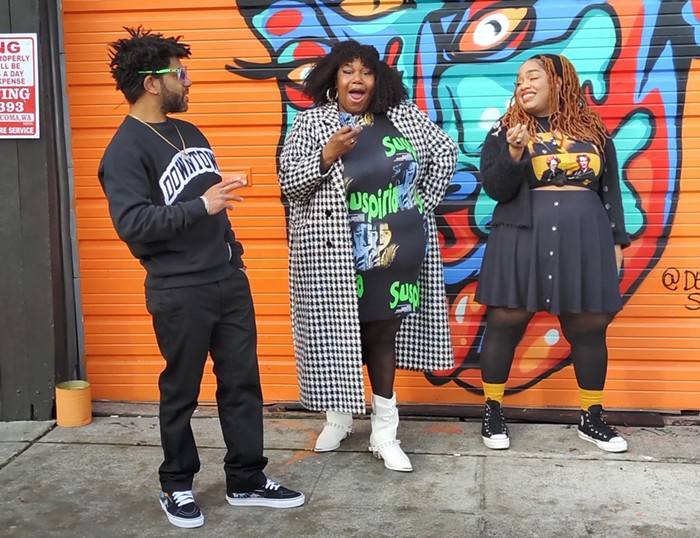It's been more than 20 years since Jim Pugel was a police officer arresting pot dealers on the corner of 23rd and Union, but he can still remember what the suspects looked like. They were almost all black men.
Now, one of Seattle's busiest pot shops sells millions of dollars' worth of weed on that same corner. But the African American community reaps only a fraction of the legal weed industry's profits. And that doesn't sit well with Pugel.
"I can understand," Pugel recently said, "how the [African American] community is a little pissed off. We, the system—police, prosecutors, judges—all went after them for relatively low potency dope in the 1980s and '90s. And now it's all mainstream. Where are the revenues going to repatriate all of those people who were incarcerated?"
Pugel is far from the first person to point out how the war on drugs mainly hurt people of color, while legalization has sent profits mostly to white people. But Pugel may soon be in a position to do something about it.
He is one of 14 people running for seats on the Seattle City Council, and there's a good possibility the next council will get to decide if minorities should get a chance to own more of the local pot industry. The Washington State Liquor and Cannabis Board (WSLCB) is asking state lawmakers to pass a law next year allowing it to issue new retail pot shop licenses to minority and women-owned businesses. The proposed law would allow local governments to request additional retail licenses for disadvantaged groups.
There's a strong rationale behind the proposal. Retail licenses are severely limited, making them very valuable and highly coveted. And white people own a disproportionate share of those licenses. White people make up 68 percent of the state's population but own 78 percent of pot shops, according to a 2018 WSLCB survey. The survey found that Asian people own 7 percent of shops, black people own 4 percent, and Hispanic people own 4 percent; all of those minority groups own a smaller percentage of retail licenses than their percentages of the statewide population.
This plan probably isn't popular with Seattle's existing pot shop owners—who already complain about too much competition—but I wanted to find out what the city council candidates thought.
District 1 candidate Phil Tavel said he did not support the program because it's "not the right time or the right method." His opponent, Council Member Lisa Herbold, did not respond.
District 2 candidate Mark Solomon said he did support the program, while his opponent, Tammy Morales, did not respond.
In District 3, Council Member Kshama Sawant said she supports the program but wants to ensure that the new retail owners also have adequate support to succeed. Egan Orion, her opponent, said he tentatively supports the idea but wants to see the final law before committing.
All four candidates in District 4 and 5 did not respond. District 6 candidate Dan Strauss sent a confusing statement and then later clarified he was a "maybe." Strauss's opponent, Heidi Wills, declined to support the idea and said she was worried how the program would impact existing pot shop owners.
District 7 candidate Andrew Lewis said he "fully supports" the idea and would sponsor legislation trying to accomplish it. Lewis is running against Pugel, the former SPD cop who once arrested pot dealers in the Central District. He said he supports the program.
What about Mayor Jenny Durkan? What about Lorena González and Teresa Mosqueda, the two council members not up for reelection? Mosqueda's office said she would respond after she returns from maternity leave. Durkan and González did not reply.

















